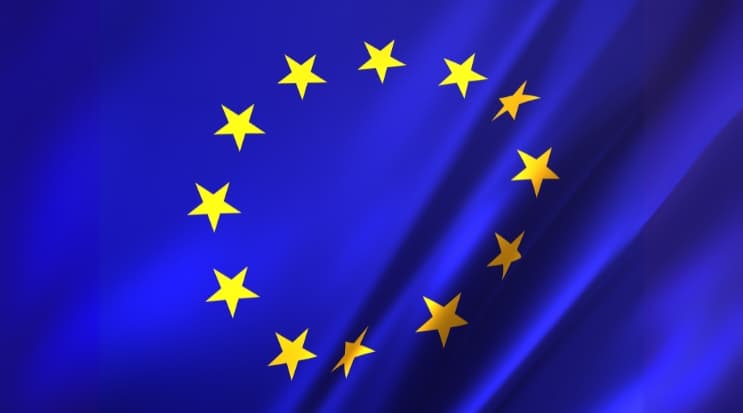
EU Takes Five Member States to Court Over Digital Services Act Non-Compliance
European Commission Pushes for Uniform Digital Regulations as Czechia, Spain, Cyprus, Poland, and Portugal Face Legal Action
The European Commission has referred Czechia, Spain, Cyprus, Poland, and Portugal to the Court of Justice of the European Union (CJEU) over their failure to fully implement the Digital Services Act (DSA), signalling a firm commitment to enforcing uniform digital governance across the EU.
Legal Grounds: Failure to Fulfil Obligations under the DSA
Since the DSA came into effect on 17 February 2024, all EU Member States have been legally required to appoint a Digital Services Coordinator (DSC)—a national authority tasked with overseeing enforcement—and establish appropriate penalty regimes to address violations by digital platforms. The five countries in question have either not designated a DSC or have not enacted the necessary national legislation to operationalise enforcement, thereby breaching their obligations under Regulation (EU) 2022/2065.
In line with the infringement procedure set out in Article 258 of the Treaty on the Functioning of the European Union (TFEU), the Commission initially sent letters of formal notice in April 2024, followed by reasoned opinions in September. With compliance still outstanding, the matter was formally referred to the CJEU on 6 May 2025.
Why It Matters: Avoiding Regulatory Fragmentation in the Digital Single Market
The Commission stresses that uneven enforcement of the DSA risks creating regulatory loopholes, enabling tech companies to gravitate towards jurisdictions with weaker oversight. Such fragmentation threatens the integrity of the EU’s Digital Single Market, which aims to ensure that rules are applied consistently across all Member States.
“The DSA is not optional. It ensures that what is illegal offline is also illegal online, and its effectiveness depends on consistent application,” said a Commission spokesperson. “Failure to enforce undermines user safety, fair competition, and legal certainty across the Union.”
In countries where implementation has progressed, including Germany, France, and the Netherlands, DSCs are already active, and national laws enabling enforcement are in place. By contrast, the five referred nations risk becoming safe havens for non-compliant tech companies, raising concerns over accountability, misinformation, and user harm.
Legal and Economic Implications
Legal experts view the Commission’s move as a critical test of EU digital sovereignty and institutional authority.
“The EU’s credibility as a regulator depends on uniformity. Selective compliance weakens the legal architecture,” said Prof. Laura Rossi, a digital law scholar at the University of Bologna.
Should the CJEU determine that these nations are in breach, they could face financial penalties, including lump-sum fines and daily sanctions until compliance is achieved.
For digital platforms operating in the EU, the DSA introduces a number of key obligations, including:
-
Content moderation and illegal content removal
-
Transparency in advertising and algorithmic systems
-
Risk assessment and mitigation for systemic harms
-
Annual independent audits for very large platforms
Platforms that fail to comply with these provisions could be fined up to 6% of their global annual turnover, as outlined in Article 52 of the DSA.
What This Means for EU Citizens and Businesses
According to Eurostat, over 89% of EU citizens aged 16 to 74 used the internet in 2024. The DSA is designed to protect these users from illegal content, manipulative algorithms, and unfair platform practices, ensuring a safer, more transparent online environment.
Consumers can expect:
-
Better reporting mechanisms for harmful or illegal content
-
Stronger privacy safeguards
-
Clearer accountability from online platforms
Meanwhile, businesses will operate in a more level regulatory playing field, where legal certainty and fair competition are guaranteed.
What’s Next: Awaiting the Court's Ruling
The CJEU will now review the European Commission’s case and determine whether the referred member states must adopt corrective measures. If found in breach, they could face both lump-sum fines and daily penalties until compliance is achieved.
Legal analysts predict that the countries involved will now accelerate legislative and institutional efforts to avoid financial and reputational consequences.
Key Takeaways
-
Five EU member states—Czechia, Spain, Cyprus, Poland, and Portugal—have been referred to the CJEU for failing to implement the Digital Services Act.
-
The DSA mandates each country to appoint an enforcement body and adopt penalties for non-compliant platforms.
-
Uneven implementation could lead to regulatory arbitrage, weakening the EU’s Digital Single Market.
-
The CJEU’s ruling will set a precedent for the future enforcement of EU digital laws.
As the EU doubles down on its commitment to a unified digital space, the outcome of this legal action will likely shape the contours of European digital governance for years to come.
For any enquiries or information, contact info@thelawreporters.com or call us on +971 52 644 3004. Follow The Law Reporters on WhatsApp Channels